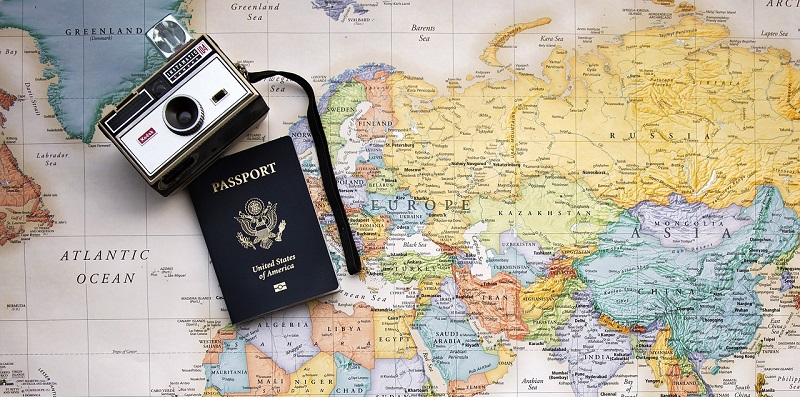In recent years, the emergence of generative AI has revolutionized numerous industries, including tourism. This subset of artificial intelligence has the ability to generate new content or data similar to the input data on which it was trained. In the tourism sector, generative AI is proving to be a game-changer, enabling personalized experiences, improving operational efficiency, and transforming marketing strategies.
The role of generative AI in personalization in the tourism industry
One of the key applications of generative AI in tourism is in the realm of personalization. By analyzing vast amounts of data, including past travel history, online reviews, and social media posts, generative AI can understand individual preferences and generate personalized travel recommendations. This level of customization creates unique experiences for travelers, enhancing their satisfaction and loyalty.
Analyzing vast amounts of data for personalized travel recommendations
Generative AI’s ability to analyze enormous datasets has opened up new possibilities for personalized travel recommendations. With access to a wealth of information, from a traveler’s previous destinations to their social media activity, AI algorithms can identify patterns and make accurate recommendations. By understanding a traveler’s preferences, generative AI can suggest tailored itineraries, accommodations, and activities, ensuring an unforgettable journey.
Improving operational efficiency through generative AI in tourism
The integration of generative AI technology has also played a pivotal role in improving operational efficiency within the tourism industry. By automating routine tasks and processes, AI allows tourism businesses to focus on more strategic initiatives. From managing bookings and scheduling to streamlining customer support, AI-powered systems can handle these tasks effortlessly, freeing up human staff to focus on more complex activities.
Automation of routine tasks and processes in the tourism industry
The automation of routine tasks and processes through generative AI solutions has become increasingly prevalent in the tourism industry. AI-powered chatbots, for instance, can handle customer inquiries, make reservations, and provide travel information in real time. The round-the-clock availability and quick response time of these virtual assistants greatly enhance the customer experience. Human staff can then dedicate their time and skills to more specialized tasks, delivering a higher level of service.
The use of AI-powered chatbots in handling customer inquiries and reservations
AI-powered chatbots are transforming the way businesses handle customer inquiries and reservations. These virtual assistants utilize natural language processing algorithms to understand and respond to customer queries in real-time. With personalized recommendations and instant answers, chatbots improve customer satisfaction and contribute to a seamless booking process. Furthermore, AI chatbots can learn and adapt over time, becoming even more effective in providing accurate and relevant information.
Transforming marketing strategies in the tourism industry through generative AI
In the digital age, marketing strategies need to be targeted and tailored to individual customers. Generative AI has become a powerful tool for analyzing customer data and generating insights into behavior and preferences. By understanding the customer’s journey, tourism businesses can create highly targeted marketing campaigns that resonate with their audience. Whether it’s offering personalized promotions or suggesting destinations based on preferences, generative AI is revolutionizing the way tourism businesses engage with their customers.
Generating insights into customer behavior and preferences for targeted marketing campaigns
Generative AI enables businesses to unlock valuable insights into customer behavior and preferences. By analyzing data from various sources, including online activity, social media interactions, and previous bookings, AI algorithms can identify patterns and trends. Armed with this information, businesses can tailor their marketing campaigns to target specific customer segments, maximizing the impact of their promotions and increasing conversion rates.
Exploring the untapped potential of generative AI in tourism
While generative AI has already made significant advancements in the tourism industry, there is still untapped potential waiting to be explored. As technology continues to evolve, AI can be further integrated into various aspects of the travel experience. From virtual reality simulations of destinations to personalized trip planning algorithms, the possibilities are vast. Tourism businesses must embrace these advancements to stay competitive in the rapidly changing digital landscape.
The crucial role of AI integration in the future of the tourism industry
As the travel and tourism industry continues to evolve and embrace digital transformation, the adoption and integration of generative AI will be crucial for maintaining a competitive edge. By leveraging AI technologies, businesses can offer unparalleled personalization, improve efficiency, and enhance customer engagement. To thrive in the digital age, the tourism industry must recognize the potential of generative AI and actively incorporate these technologies into their processes and strategies.
In conclusion, generative AI is revolutionizing the tourism industry by enabling personalized experiences, improving operational efficiency, and transforming marketing strategies. Through the analysis of vast amounts of data, AI algorithms can generate personalized travel recommendations, improving customer satisfaction. By automating routine tasks and processes, AI-powered systems enhance operational efficiency within tourism businesses. Furthermore, generative AI provides valuable insights into customer behavior and preferences, allowing businesses to develop targeted marketing campaigns. As the industry continues to evolve, the adoption and integration of AI will be essential for staying competitive in the digital age. The potential of generative AI in tourism is immense, and its continued growth and development promise even more exciting possibilities for the future.

